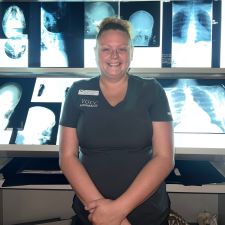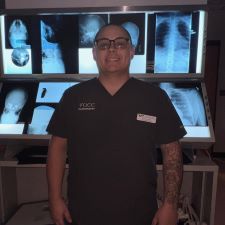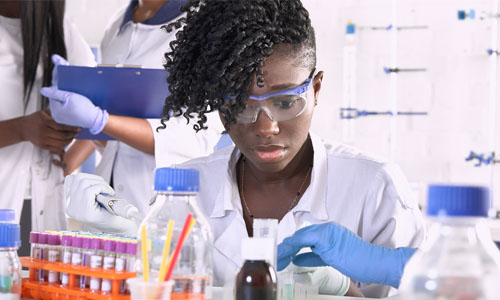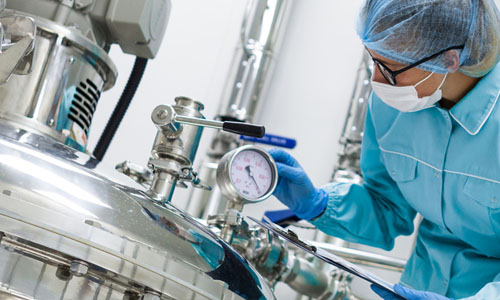Biotechnology
Program Description
This curriculum prepares individuals to apply scientific principles and technical skills in support of biologists and biotechnologists in research, industrial, and government settings.
Coursework, most of which is hands-on, includes topics such as fermentation technology, cell culturing, protein purification, biologic synthesis, assaying and testing, quality control, industrial microbiology, bioprocessing, chromatography and bioseparation, genetic technology, laboratory and hazardous materials safety, and computer applications.
Graduates should be qualified for employment in various biotechnology-related laboratory and manufacturing areas of industry and government, including research and development, QA, QC, process technicians, sales, and customer service.
Graduates will help attract economic growth to Vance, Granville, Franklin, and Warren counties as companies desire to open and expand in the area with a well-trained workforce. Be part of North Carolina’s growing biotechnology industry!
| Program Name | Credit Hours | Program Type |
|---|---|---|
| Biotechnology A.A.S. Degree A20100 (Course Sequence) | 68-69 | |
| Biotechnology Diploma D20100 (Course Sequence) | 39 | |
| Programming for Biotechnology Certificate C20100B (Course Sequence) | 18 | |
| Biotechnology Certificate C20100C (Course Sequence) | 16 |
Program Details
Discover the specifics of our programs, including required courses, course sequence, pathways, and learning outcomes.
- Students receiving the Biotechnology AAS degree will be able to prepare reports summarizing data obtained and laboratory procedures used to facilitate effective reproducibility by a peer.
- Students receiving the Biotechnology AAS degree will be able to use mathematical techniques to analyze bioprocessing data and quantitatively evaluate the results against pre-established criteria.
- Students receiving the Biotechnology AAS degree will be able to understand the requirements of GMP and how the FDA and other parts of the world regulates the biopharmaceutical industry.
- Students receiving the Biotechnology AAS will be able to apply engineering concepts and process unit operations learned during the course of study to solve upstream and downstream process problems.
- Students receiving the Biotechnology AAS degree will be able to accurately and precisely perform laboratory measurements, operate a variety of laboratory instruments, and analyze the results generated from the use of those instruments.
Students enrolled in pre-approved continuing education training courses may request awarded credit in corresponding curriculum programs. They must first register, pay, and pass the continuing education course with a grade of satisfactory. In order to request awarded credit, the student must be enrolled in the corresponding curriculum program.
The credit will be awarded by the appropriate department with a grade of “PR”, Credit for Prior Learning. The credit hours of the course will count toward graduation at VGCC but may not transfer to other colleges or universities.
For a more comprehensive list of Continuing Education courses and their corresponding curriculum programs, please visit Approved CE to CU Prior Learning Credits.
Approved Prior Learning Equivalencies
| CE Course Taken | Equivalent CU Course | Credit Hours Awarded | Effective Date |
|---|---|---|---|
| BTC 3200 BioWork Process Technician, 12.8 CEUs | BPM 110 Bioprocess Practices | 5 | January 11, 2022 |
For more information, choose the path below that best describes you.

“The Radiography program has taught me how to succeed in the program and how to provide great patient care. The teachers are a great help in getting you prepared.”

“Vance-Granville’s Radiography program is amazing. They truly care about developing the next generation of Radiologic Technologists. I couldn’t recommend it more to anyone who is curious about the field.”


